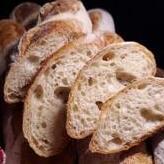-
Welcome to the eG Forums, a service of the eGullet Society for Culinary Arts & Letters. The Society is a 501(c)3 not-for-profit organization dedicated to the advancement of the culinary arts. These advertising-free forums are provided free of charge through donations from Society members. Anyone may read the forums, but to post you must create a free account.
Kosher Salt
-
Similar Content
-
- 40 replies
- 5,356 views
-
- 33 replies
- 2,351 views
-
- 8 replies
- 495 views
-
- 3 replies
- 513 views
-
Chicken Salt?
By lindag,
- 8 replies
- 1,312 views
-
-
Recently Browsing 0 members
- No registered users viewing this page.




Recommended Posts